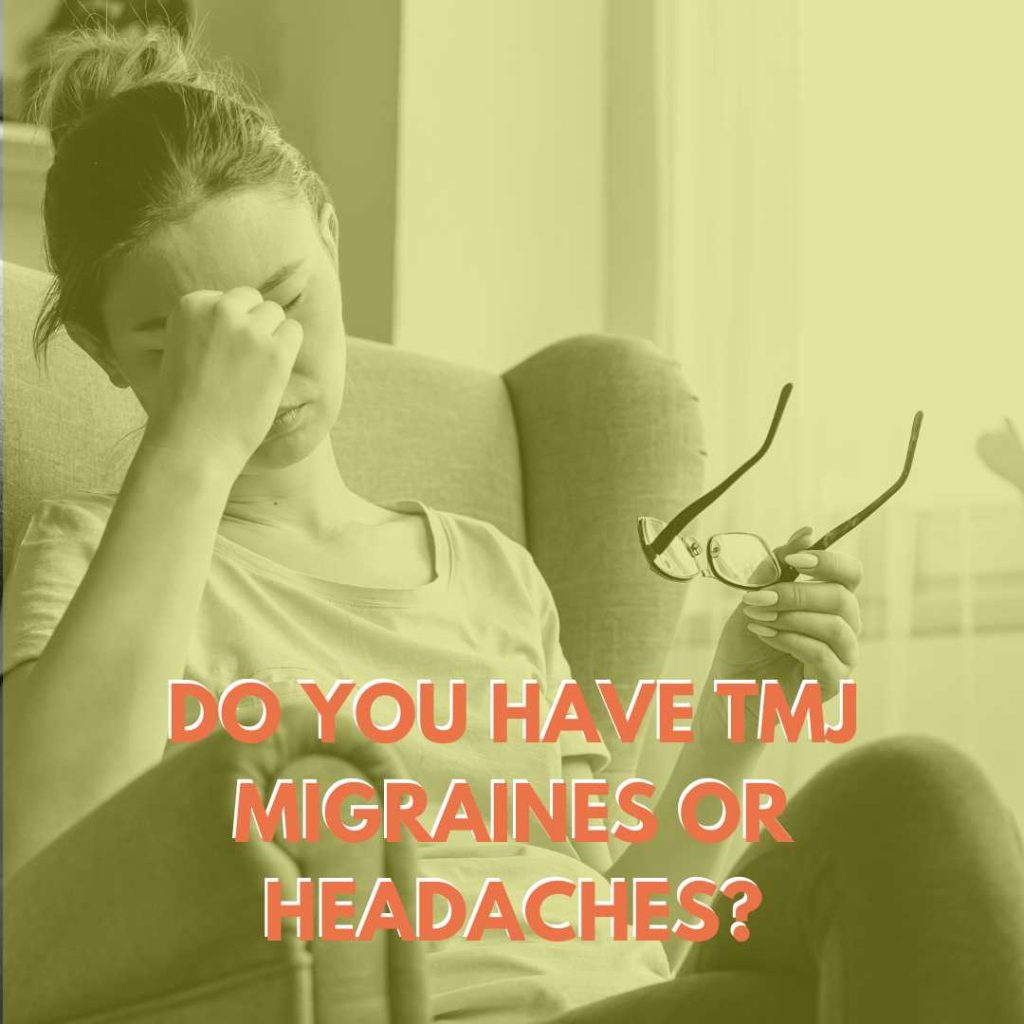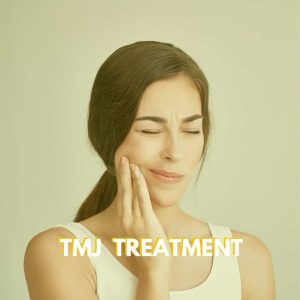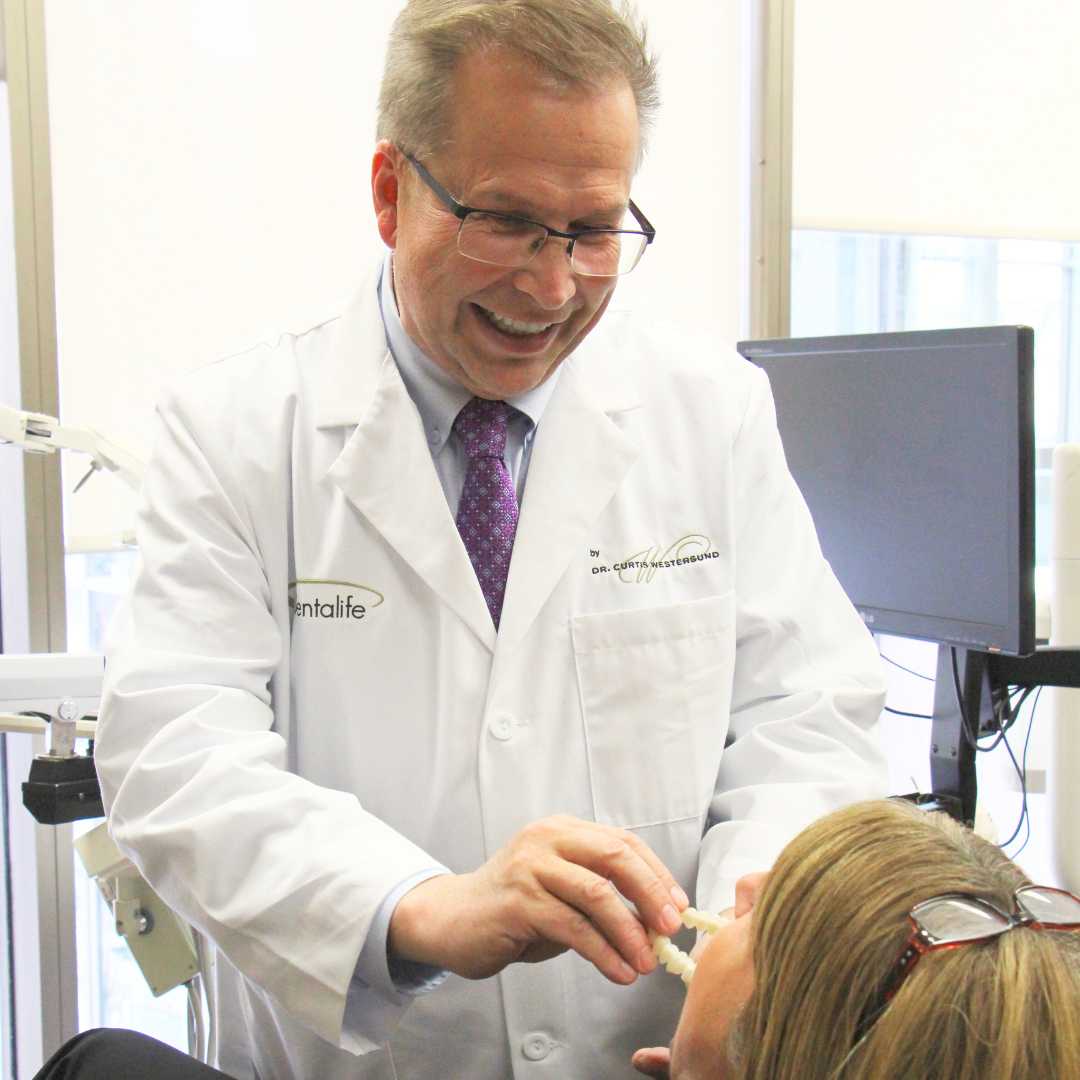If you suffer from headaches or migraines as the result of TMJ, you’re not alone. But first: What are TMJ migraines or headaches actually? TMJ stands for Temporomandibular Joint and refers to the joints under your ears, specifically the joint in your jaw where your lower jaw connects to your skull. When these joints become inflamed because of a misaligned bite, they can cause headaches and migraines as well as pain in your jaws, neck, face, ears, shoulders, and more.
For most people, the first sign of an issue with their TMJ joints is having trouble opening their mouth or chewing food normally. When you experience TMJ Migraines or Headaches in Calgary, make an appointment with Dr. Curtis Westersund at Dentalife who has treated hundreds of TMJ patients.
But please be aware: There are no guarantees in the medical world. TMJ solutions, treatment, and results are dependent on your personal condition and circumstances.
#1. Recognize Your TMJ Migraines & Headache Symptoms
Many people suffer from headaches and migraines, but don’t realize that their symptoms may be stemming from Temporomandibular joint disorder (TMJ). It’s important to be able to recognize your TMJ migraine and headache symptoms so that you can get the proper treatment.
Do you experience this?
- Pain in your jaw or teeth on one side of your head
- Pain in the back of the neck on one side of your head
- Headaches which come on gradually and increase over time
There are many different treatments available for TMJ migraine por headaches relief including: medications, mouth guards, physical therapy, and even surgery. These treatments vary depending on what works best for each individual.
The most common symptoms associated with chronic tmj headache or tmj migraine pain is numbness, loss of muscle function, pins and needles sensation, and/or loss of sensation. If you experience any of these symptoms, it is time to take action.
#2. Understand TMJ Migraine And Headache Causes
Generally, most of the time, TMJ pain is due to some type of trauma in your past, such as a car accident, a fall, an upper body injury, a facial injury, or past dental work, such as tooth extraction that never healed properly. It could also be caused by a regular habit, such as teeth grinding at night, wearing out your bite, chewing too much gum daily, or sitting in an unhealthy position (poor posture).
In addition to genetics, your genes can also contribute to TMJ pain. TMJ muscles suddenly react to an awkward jaw, teeth, or tongue position, and with aging you may experience joints that suffer from severe strain, inflammation, or damage.
Most common causes of TMJ Disorder
- Injury
- Tooth Decay
- Infection
- Autoimmune Diseases
- Arthritis
- Stress
- Teeth Grinding
- Dental Procedures
- Medical Procedures (Surgery)
- Repetitive Action
- Bad Posture
- Genetics
Are any of the TMJ Disorder causes listed above applicable to you? Think back. Were you in an accident? Had a sports injury? Or are you under continuous stress? These causes can certainly contribute to a TMJ Migraine or Headache Disorder.
Many people in Calgary who were suffering from TMJ Symptoms found Dr. Curtis Westersund at Dentalife through the Google search: TMJ Dentist Nearby. For more information: Call his Dentalife practice today 403-262-9898.
3. Schedule a TMJ Migraine / Headache Diagnosis Appointment
When you experience TMJ migraine or headache symptoms, the first step is to schedule a TMJ migraine / headache diagnosis appointment with your medical doctor or TMJ dentist Calgary. This will help determine the underlying cause of your pain. Once the cause is determined, your TMJ practitioner can recommend an appropriate treatment plan.
When you live in Calgary and suffer from this debilitating disorder that can completely ruin your life, we recommend to schedule a TMJ Migraine & Headache Diagnosis Appointment with Dr. Curtis Westersund at Dentalife in Calgary downtown. We can help. Make an appointment today.




